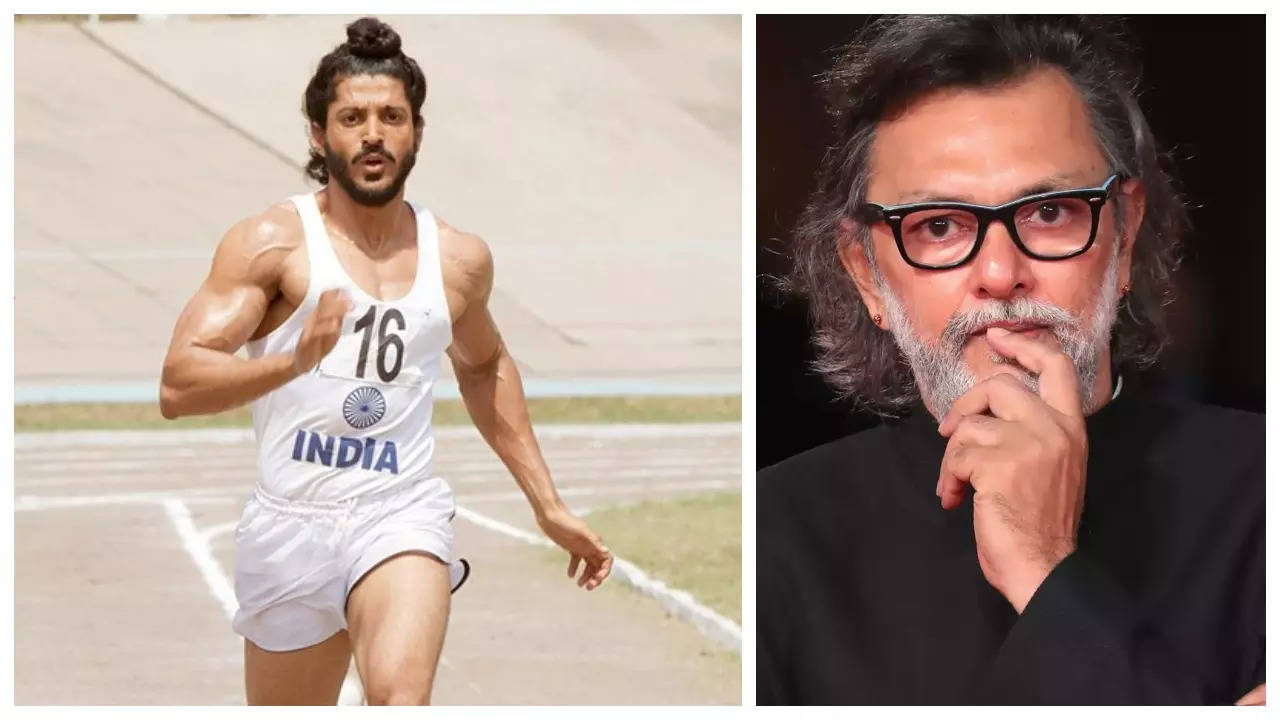Ahead of its releases, ETimes spoke to the filmmaker, who walked down memory lane and shared special anecdotes from the days of ‘Bhaag Milkha Bhaag’. Excerpts:
10 years of Bhaag Milkha Bhaag, one memory from the movie that has stayed with you?
There are so many, from the first time I met Milkha Singh in Chandigarh and spoke to him about his life. I remember I’d gone there for just one day and I stayed back for the next five days. It was incredible hearing his story, which I wanted to tell from the man whose story itself was, and seeing the tears emerge in his eyes when he spoke about the massacre of his family as a 12 year old, he had vivid memories about the partition, hearing about the Rome Olympics and how he looked back and lost the race and hearing about his most beautiful moment, which also remained as one of the most beautiful moments when I was shooting was his race in Lahore, when he was given the title of the Flying Sikh. So there’s a bouquet of memory.
How are you celebrating this milestone?
After 10 years, it all seems to come back like a wave. For me, Milkha Singh lives forever, though he’s not between us right now. So we are holding a special screening as a homage to him, where his family is joining us, the entire cast and crew will come together. And another small good news I must share with you is we are re-releasing the film in 13 cities in India on the 6th of August, where the film has been adapted for deaf and mute, for the hearing impaired. So it’s in their language, it’s in ISL, Indian Sign Language. So while you will be hearing the original audio, but they will also get to understand it in their own language. So it’s a much more inclusive film.
Bhaaag Milkha Bhaag came right after Delhi 6, how was it conceptualized?
I chanced upon an autobiography of Milkha Ji, but it was in Gurmukhi, in Punjabi language. I didn’t know the language. So I requested an uncle of mine to read and tell me the story. The high points from the book remained with me, so I immediately requested him to meet him. And he obliged. I went to meet him and then there was no looking back after that.
Were you disappointed, disheartened when the film did not work out with
No, it’s a process we all follow as filmmakers. And, you know, you would not marry the first boy you meet. So that would be like really crazy. You have to find the right mix. In fact, we auditioned more than 2,800 kids for the young Milkha role, until I met Japtej. It was a chance meeting in Punjab, not a planned audition. We were researching for the film, when the caterer came with lunch and I saw the little boy who was serving was his son. I saw something in him and rest is history. Casting is not a process about who does the film and who does not do the film. Casting is a process about where the lines meet.
How did the journey with Farhan Akhtar for Milkha Singh begin?
When I was talking to Farhan about the film and proposing it to him. It took 20 minutes for him to understand as to what I was trying to do with the movie. And it was so beautiful. The moment I entered the room, I had found my Milkha. It was now up to him to accept the part. And he just didn’t accept the part, he just didn’t play the part, he became the part. He became Milkha Singh.
And there’s a lovely anecdote. Once we were shooting at National Stadium for a few races. We had put a small tent where Farhan would rest between the takes. In fact, he used to put his legs in the ice bucket after every take because it’s physically demanding. And at that point of time, Sonia, Milkha Singh’s daughter, she happened to come in. And we went into Farhan’s tent and she went, “Oh, my God!” She almost fainted, thinking she’s seeing a younger version of her father. So that’s how much Farhan got under the skin of the role. Forget about the demands of the role, not just physically and emotionally, he just became the part. It was not an easy process, we just went moment to moment, hour to hour, day by day, and very patiently worked towards what we wanted to do. Our bond grew over the years.
You recently spoke about the down phase you had after Delhi 6, how did you move on from that low phase and deliver an ace like Bhaag Milkha Bhaag?
Delhi 6 was not an easy film to make. And it was a film where I did question blind faith, intolerance. I did request to respect each other for what they are and what they believe in and not question that. I did propose interfaith alliances. So all that maybe didn’t go down well. So it also sent me in a dark phase. But it was because of Delhi 6 and I could make a Bhaag Milkha Bhaag, because I had to bounce back and say the same thing again, but in a different way. And fortunately, that went down well with the audiences.


